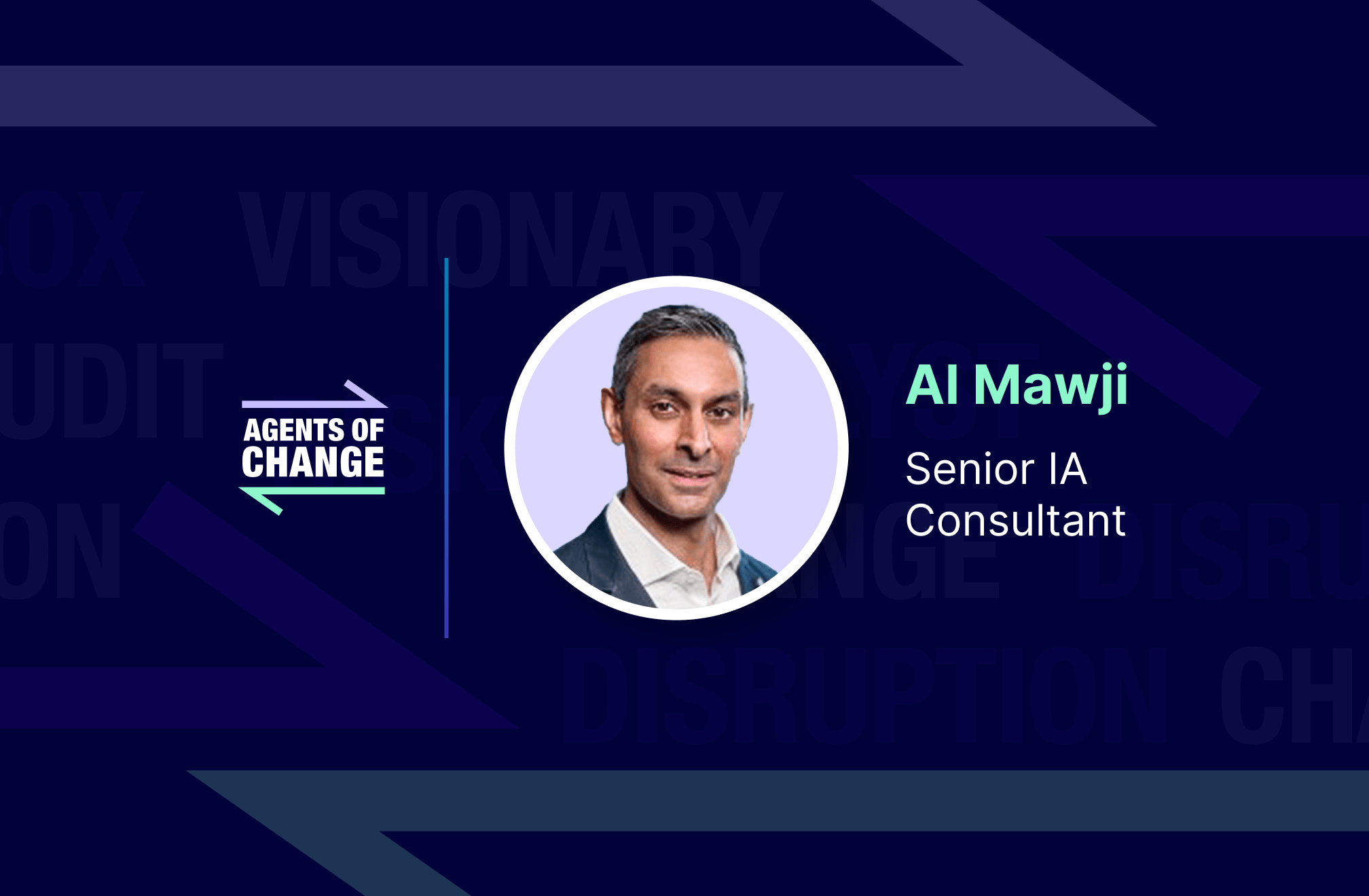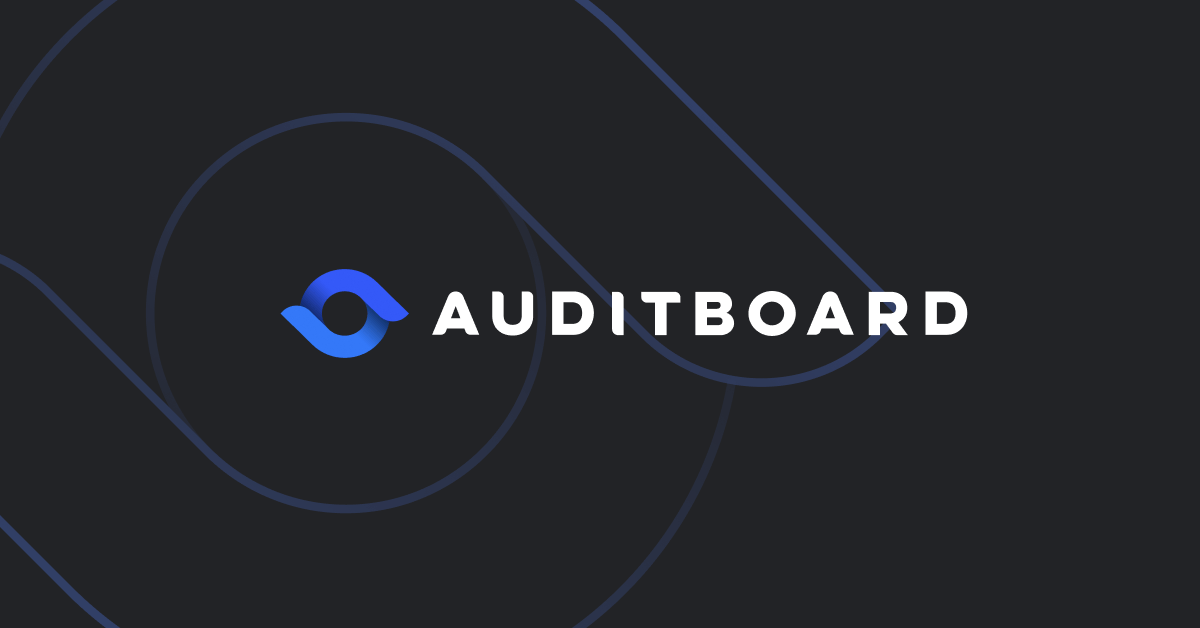Al Mawji Shares IA’s Powerful Enterprise-Level View of Risk to Improve Decision-Making

Join Richard Chambers for a new episode of his Agents of Change video series, featuring conversations with internal audit leaders from some of the world’s most prominent organizations about innovation in the profession.
In this episode, Richard sits down with Al Mawji, Senior Internal Audit Consultant and former SVP Risk & Assurance at Brookfield Asset Management, to discuss how prioritizing empathy and humility in internal audit can build the trust needed to help an organization transform itself to meet the demands of today’s volatile risk environment, including:
- Flexibility, empathy, and dialogue are keys to dealing with unprecedented levels of risk organizations are facing today.
- Internal audit sits at the intersection of risks, gaining a powerful enterprise-level view it should share with key stakeholders to improve business decision-making.
- Maintaining relevance means guiding the organization in managing trends such as rising inflation and increasing fraud risk.
Watch the full conversation, and read the can’t-miss highlights below.
Flexibility, Empathy, and Dialogue Are Keys To Deal With Unprecedented Level of Risk
Richard Chambers: These last couple of years have been truly insane in terms of risk dynamics — the velocity and volatility of risk have never been greater. It seems like every time we think we have it figured out, there’s a new risk zooming in from the periphery that we didn’t see coming. In some ways, change is part of the landscape and there’s really almost no way to avoid that. From your experience in leading an internal audit function in the financial services field, how have you and your team navigated the kind of change that the pandemic and all of the risks of the last year have brought?
Al Mawji: I think by having a trusted dialogue with stakeholders — to be that trusted advisor, to be able to perform risk assessments in a real-time scenario, to be able to have the conversations with our stakeholders around what they’re facing. We must put ourselves in their shoes to understand the risks that they’re facing so that we can add value and help them to navigate those risks — although we’ll never own the risks. Our role is very clear that we should be able to be a trusted advisor and give relevant assurance at relevant points in time.
As risks evolve and change management strategies are put into place, we should flex our audit plans accordingly to be able to give assurance over that change management process, and we should be flexible in that approach. I think that that’s the way that we have faced — not only the last couple of years with the pandemic, but really the last 20 years or so — where we frankly quite unprecedented change in the political landscape, in social demographics, in technology, all evolving, as you said, at insane rates.
Internal Audit Sits at the Intersection of Risks, Gaining a Powerful Enterprise-Level View to Improve Business Decision-Making
Richard Chambers: In my book, Agents of Change, which was published last year, I argue that internal auditors of the 21st century have to be more adept at helping their organizations change — they have to be change agents. I define change agents as those internal auditors who are catalysts for transformational ideas that help the organization help not only protect the value in the organization, but help create value. What’s your assessment of that? Do you agree that that’s an appropriate role for internal audit?
Al Mawji: Yes, I absolutely do, Richard. I think as internal auditors we work across the organization from an enterprise-level all the way down to a process level. We sit at the intersection of risks, and so therefore it’s natural for us to be able to have that horizon and enterprise-level view of how risks are evolving and that interconnectedness of risks, which is very powerful to our stakeholders, management, and the board.
Richard Chambers: I couldn’t agree with you more. One of the things that I put forward in the book is that we really will never be seen as credible change agents unless we’re willing to change within our own organizations. So as a chief audit executive for these last 10 years, how have you tried to drive change in the way internal audit operates? Are there success stories that come to mind as far as the way that you’ve helped the organization transform its internal audit approach?
Al Mawji: I think the first way is with our people. It’s allowing our people to have that empathy around what people are going through today with the unprecedented level of change. That translates directly into our work around our risk assessments — having that ongoing risk assessment protocol, but engaging our stakeholders on a frequent basis. We found in the last few years that we’ve engaged our stakeholders much more frequently. In the past, it may have been only a couple of times a year where we would revisit risks. Now it seems in every discussion that we have, we have risks on the table and that ongoing dialogue of risks.
I think another way is through technology and data analytics — the sharing of data. That’s something internal audit has been doing for many years, and we’ve been quite fortunate to be able to have that access to data because we work across the organization and we validate our findings and our observations with data. One of the ways that we add value back to the organization is by bringing those protocols and systems that we have built to allow the organizations to make business decisions based on that data. They get a great degree of comfort that that data is relied on by internal audit and has gone through rigorous validation protocols — it has given internal audit significant credibility in the business.
In a Trusted Advisor Role, IA Must Help the Organization Take a Balanced Approach to Risk
Richard Chambers: I make the argument in the book that we have to be more forthcoming in helping others to understand what we can do for them — as I say, secret agents can’t be change agents. You can’t keep what you do within the walls of internal audit. In your years as a chief audit executive, how successful do you feel you’ve been, and what led to success as far as helping the stakeholders, the board, and management understand the role of internal audit and its potential to help them?
Al Mawji: I do get asked that question by our board as to what we believe our role is. We clearly have a mandate. We have an internal audit charter, but it goes way beyond that. It’s more about how we engage with management, how we continue to be relevant as an internal auditor in our profession today, how we demonstrate sound business principles. In the world that we live in as an internal auditor, we are continually focused on how to address and manage risk or what could go wrong. I think we need to have a balance to guide the organization in the best principles to manage those risks with sound business judgment — I think that is a part of our role as an internal auditor.
Empathy and Humility Are Key Attributes for Internal Audit to Build Trust
Richard Chambers: Before we started writing the book, we surveyed more than 600 chief audit executives around the world about what attributes it takes to be a change agent in internal audit: strong business acumen, relationship-centric, strategic mindset, and innovative. Do you think that captures what it takes from a broad standpoint to be a change agent?
Al Mawji: I think that does encapsulate it very well. I’d probably just enhance maybe the relationship management part of it — this is where we focus very much with our people on the theme of empathy and humility. Our role is to serve the organization and support the organization as a trusted advisor. One of the key skills and attributes that we should be very conscious of demonstrating in all aspects of our work is trust, empathy around how the business is changing, and humility of being able to know when to step back and when to let the owner of a risk manage that risk.
Richard Chambers: I agree — we can be change agents in terms of bringing ideas but we can’t be the ones who implement the change.
Stay Relevant and Guide the Organization in Managing Trends Such as Rising Inflation and Increasing Fraud Risk
Richard Chambers: If you put your crystal ball in front of you and you looked ahead, what do you think lies in the future for the internal audit profession? Is there something you think we absolutely must get right to be successful as a profession? What advice would you give?
Al Mawji: I think it’s the theme of relevance — maintaining relevance with what is happening with the world today. There are a number of macro-level trends — mega trends as we call them. One trend today is around rising inflation, which has a clear impact. Everything seems to be just more expensive, especially so in the last couple of months. Filling up gas in my tank has just become insane. This has an impact on everybody and in the workplace, especially because as prices rise, wages are not rising — that puts pressure on people. If we look at the macro-level trends around urbanization rates in the last 20 years, nearly 60% of the world’s population lives in urban cities. We will see organizations face an unprecedented level of fraud risk as technology enhances and more processes are reliant on systems, there is greater level of fraud that may occur as well. As a profession, we need to be able to look at those types of trends, try to chart how they will impact an organization, and be able to guide our organizations to manage those risks. I think that’s one way of continuing to be relevant.
Check out more audit leader interviews with Richard Chambers on our Agents of Change video series channel.


